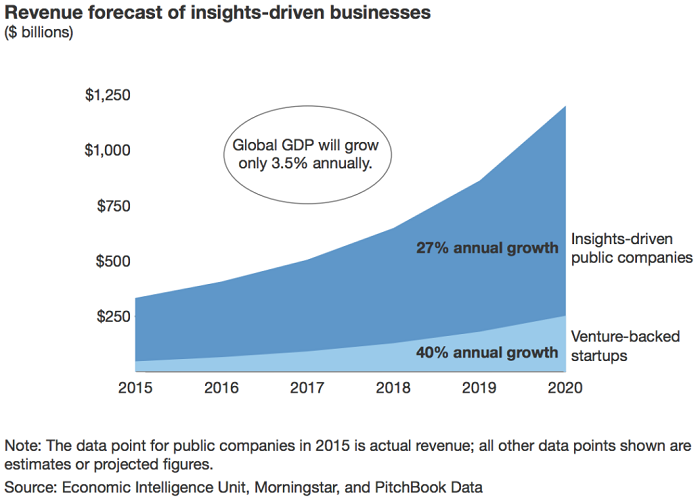Test drive the Talkwalker AI Engine!
What is AI & why is it awesome?
I have glimpsed the future impact of AI on marketing, and it’s awesome. AI-powered martech has brought a new level of trust to information, improved the way it’s delivered, and provided more accurate insights and predictive analytics for high-level decision making by marketing professionals.
Let’s not be suspicious of artificial intelligence. Let’s not fight it. Let's not be scared of change, of progress. Like it or not, it’s happening. It’s been happening for years. AI is not to be feared. It can only do what we tell it to do, what we teach it. We remain in charge.
When trains first took to the tracks in the early 19th Century, people swore the human body travelling at such speed - 48 kph - would melt.
You’re not gonna melt.
AI won’t steal our jobs. We get to choose, use, and abuse AI to our own end.
Artificial intelligence future
So, I challenge you - marketing professionals - to jump onboard the AI engine. To amplify your communication. To automate your processes. To fine-tune your data. To save time and reduce costs. To…
- Analyze the digital landscape and bring precise insights and real-time updates
- Share content to targeted audiences and team members in a virtual reality scenario
- Deliver precise personalized content to consumers
- Predict, monitor, and respond to crises in real-time
- Track and assess trends
- Identify metrics with greater data coverage and data accuracy
- Manage localization of content globally
- Wave goodbye to Booleans and jump on Talkwalker's AI Engine
AI trends from marketing experts
Fake news? Science breakthroughs? Let’s read what our experts think…
Christopher S. Penn Martin Shervington
Christina Garnett Stephen Waddington
Tanya Wehr Adrienne A. Wallace
Natacha Rousseau Lisa Talia Moretti
Experts... What are the AI trends?
The future of media monitoring
"At Trust Insights, we see three major trends in AI.
- First, preparation for AI. Companies planning for the future must clean up their data foundations. Companies now recognize the importance of having a clean data house, but are struggling to get their houses in order. The most progressive companies have had good data governance all along; for everyone else, we strongly recommend people look into the ISO 38500-2015 governance standard - Instant Insights: MarTech Governance Framework.
- Second, attribution analysis is one of the most interesting applications of AI, and it's achievable with relatively mature AI technology today. What used to cost millions of dollars and required massive hardware can now be done on a laptop, and so proving the value of marketing channels, tactics, and strategies is more achievable than ever.
- Third and finally, natural language processing has matured to a useful toolbox for marketers. So much of what we do every day revolves around unstructured data - social media conversations, content marketing, audio and video - all data that's unstructured and difficult to quantify in its native form. Thanks to decades of academic research and modern computing power, marketers at companies of all sizes can reap the insights buried in their unstructured data today.
There's much more to come in the field of AI as it relates to marketing, but these are trends and technologies available today to marketers at organizations of any size."
Chris, you've given our new AI Engine a spin. What did you think?
"Talkwalker's new machine learning capabilities are great for the media monitoring industry and more important, give Talkwalker first-mover advantage in artificial intelligence for the media space. The training dataset they're building has a distinct advantage - motivated, highly-qualified users doing annotation of media and sentiment. This is in contrast to more general projects where you don't have the core customer providing the training data, leading to less useful results. That data is the future of media monitoring."
AI will help businesses to get the right messages to the right audience at the right time
“AI and marketing is still in its infancy. In the near future we will continue to see increased sophistication in conversational bots, and the emergence of machine learning across customer relationship platforms. Putting it simply, AI will help businesses to get the 'right messages to the right audience at the right time' to influence consumer decisions. 'Predictive lead scoring', currently more at an enterprise level, will also emerge as a need across all industries at all levels of business - feeding back into 'who ends up buying' from which channels, hence influencing future resource allocation. Early days, but exciting times for savvy marketers.”
What AI means for the everyday consumer and marketer
“AI, like social media, will show our true selves in how we use it. AI will continue to advance and be used more and more in our everyday lives. It is crucial for there to be an active response to educate the population on how AI works as well as provide transparency of the repercussions. Transparency is the key to adoption separate from those in the tech community. Generally we tend to see the higher and lower levels iterations of AI whether it looks like minority reports or chat bots, but we need to bridge that gap and think about what AI means for the everyday consumer and marketer.”
Applying good judgement and ethics will always be needed
“The narrative around the impact of AI on professional jobs is typically polarised between denial and techno-panic.
Today 12% of PR skills can already be undertaken or significantly enhanced by artificial intelligence. This figure is likely to rise to 38% over the next five years.
These findings are from a new report called Humans still needed: An analysis of skills and tools in public relations, published by the CIPR’s #AIinPR panel. It examines the impact of technology and specifically AI on public relations practice.
Technology is impacting PR in a variety of ways, including the simplification of tasks; listening and monitoring; and automation.
But regardless of the tasks and skills that can be automated or benefit from AI, human intervention, editing, sensitivity, emotional intelligence, applying good judgement and ethics will always be needed.
Technology creates opportunities for new products and services. Organisations that are quick to adapt new technology gain competitive advantage.”
Talkwalker's AI feature blew my mind!
"Social listening is a big part of what we do at Pielinen Communications. My team and I use a variety of tools to monitor what people are saying about our clients’ brands. It allows us to measure and evaluate our clients’ overall Social Media Strategy and helps measure tactics for short-term campaigns. I recently had a chance to test out Talkwalker’s monitoring service and was very impressed. Their AI feature blew my mind! The systems gives us many valuable insights such as which social networks our audience is most actively using, the general sentiment about our clients’ brands and products all in one place. The AI feature makes it easy to analyze quantitative metrics (e.g. Volume of Conversation) and qualitative metrics (e.g. Sentiment of Conversation), this in-depth analysis provides valuable insights to determine our clients’ social performance."
AI is a buzzword for marketers, but do they understand it?
"I am noticing that “artificial intelligence” has become a buzzword for marketers, but as many as should or could understand it really do not. This must change because CMOs are the cultural voice and noisemakers of a brand. There is an absolute need for experts and a strong call for the CMO and CTO teams to work together as partners so that technology brands that create and sell artificial intelligence or have it as their core functionality (for the software and services that they produce) win.
It is important that we not only have operations teams that understand the product, but also cross functional and marketing teams that understand how it is made, how to analyze internal and external data properly and use it to deliver results. The real challenge is how this also impacts the artificial intelligence we use and presence of algorithmic bias.
I use Apple’s Siri and I also use Amazon’s Alexa services. Alexa does not richly catalog things that represent a diverse and growing minority and definitely therefore does not acknowledge it’s global customer base in the same way that Apple’s AI does. The data is not programmed into the AI on the Amazon side to the same volume because the programmers do not have a cultural reference or association with subject matter being called up by a diversity qualified end user; so there is algorithmic bias.
We need to be careful to mitigate and limit the instances of biased AI because it leads to discriminatory practices in servicing, buying and selling."
The tools don't provide insights - humans do
“From a market research point-of-view, the implications of AI are huge and offer many opportunities. It is going to help with the speed to segment and code large data sets, including social data, at a greater speed and a diminishing cost.
AI will get better at identifying emotions, personality and behaviours but companies will still need humans to understand the WHY. We still need human insight to make sense of the data and interpret what it means for business. The tools don't provide insights - humans do.”
Image recognition gives purchasing power to consumers
"The past few years I have been very interested in the possibilities of image recognition. Image recognition is already in the hands of many brands that often leverage it to spot their logos and products throughout the internet but there's a new use that really has caught my attention. Snapchat just announced a partnership with Amazon to offer "visual search" shopping directly from the Snapchat app. This technology allows users to take a picture of say their friend's shoes and if recognized and available on Amazon they will be brought to that product page, instantly in position to purchase something. As consumers how amazing would it be to see something you like, take a picture, and be able to buy/research it at a moment's notice? It's like Shazam for shopping (oh yea, Shazam was just acquired by Apple for around 400 million dollars this week...)."
Dreams come true with Talkwalker AI Engine
"AI is not just a trend that is happening in social media, digital and marketing sectors. It’s going to transform how we interact not just with technology in the industry, but in the classroom as well.
AI is one of the rising areas of focus being covered in classes, and even integrated into class exercises and activities. Teaching students about the role AI plays in helping professionals with certain tasks (ex. collection of data, creation of bots for certain purposes, data mining for research, etc) should be part of the evolving curriculum in social media and digital technologies.
In addition, we will see some significant changes for how we conduct our business, personal and professional activities.
We also have to acknowledge that the use and integration of AI may be different across disciplines and professions. What is key to recognize is the fact that AI is going to be an integrated part of the marketing communication mix. While AI can’t replace human communication and insight, it can still provide significant value to our personal and professional activities."
What did you think of Talkwalker's AI Engine, Karen?
"Talkwalker has made every PR and social media professional’s dreams come true with their AI engine integration into media monitoring. The days in which we have to figure out how to take out all of the noise are over. With this tool, we are able to capture meaningful, relevant, and substantive results that will provide more informative insights. This new feature can be used in any capacity in industry as well as academia. This tool can show the impact and integration of AI for students. I can’t wait to share this with my fellow educators and students!"
AI is rapidly becoming a part of everyday life — And it’s the same in marketing.
How will you stand out in an AI-saturated world?
“If you’re not yet preparing your business for scaled customer engagement on an intimate and highly-accurate level, now’s definitely the time.
There’s always been so much data at our fingertips, but it’s only now that we’re beginning to understand how to utilize it effectively for seamless customer experiences.
AI is the primary reason — it’s all about insights (and you can bet your data it will drive this impressive market growth):
Insights-driven businesses will steal $1.2 trillian annually by 2020
We’re only just scratching the surface of this relatively new technology, with trends like these showing no signs of slowing.
Virtual assistants, IoT, core marketing automation, data analysis and prediction are popular applications today — in the near future, expect:
- Significantly improved capability to create written marketing content that isn’t rigid (there are already a number of eye-opening solutions available)
- Ability to leave the choice of social media imagery etc. to a machine, as context is progressively better understood
- Almost hands-off management of paid search / bidding campaigns
- A much larger portion of SEO management automated, including outreach (for example, even sales emails can now be intelligently deployed without ongoing manual input)
“83% of email marketers are failing to plan for AI.”
- Wider adoption of all the above across smaller businesses, as more SaaS vendors are able to offer AI solutions at affordable rates and SMEs realize the potential
- A need for more robust data privacy regulations and recruitment — creating new executive roles (while simultaneously costing businesses more resource)
- The buzz and mentions of AI gradually calm, as it becomes baked into nearly all marketing processes
So, how will you stand out in an AI-saturated world?
It’s exactly the same answer as before:
The right mix of human + machine will prevail (and budget definitely helps a lot).”
Token-incentivized humans validating AI-generated metadata
"I think that a trend in AI is the increasing number of token-incentivized humans who will validate AI-generated metadata, which is the backbone of video content. Metadata is textual descriptions that can be used for searching, classifying and organizing, but when scaling is required, machine-generated metadata is not always accurate. Because there is a large number of video content on the internet, human validation can be extremely expensive. So, the solution will be an increasing number of blockchain-based protocols that will combine AI with crowdsourcing to create and validate text and metadata."
AI needs purposeful development
"There are two key things that need to be communicated clearly before we talk about AI. Firstly, we need to acknowledge that like all technology, AI isn’t just a product; it’s part of a bigger technology system. One that is connected to other systems in society like power, education and social life. As a result, without mindful and purposeful development in place (ethics and more ethics), AI can cause havoc in society as we have already seen in multiple failures to date.
The second key thing is to ensure that people understand that AI isn’t just an off-the-shelf product solution but is used as a hold-all term to refer to a number of different technological components. To talk about AI is to inadvertently talk about machine learning, data, algorithms, computer vision technology, natural language processing, and robotics.
Within social psychology, a relationship is defined as an interaction where a change in behaviour, cognitive and emotional state of a person produces a change in the other person. If we expand this definition to include relationships with objects, we can truly start to appreciate the impact machine learning is set to have on people’s relationship with technology. Our tech is changing its behaviour based on how we use it!
In the truest sense of the word, we now have a relationship with technology. As a result, we need to start researching and appreciating more human qualities that are required in order to sustain a long-term relationship; qualities like serendipity, acceptance, trust, empathy, voluntariness and cooperative problem-solving. In addition, in order for machines to learn, they have to be allowed to fail. In a world where loyalty is supposedly dead, the best we can ask for is forgiving customers.
I think the human phenomenon of forgiveness is being ignored at our own peril! While utility and usability will continue to be important, they will join a longer list of more human qualities that will be required in order to connect with the customer of the future."
Thanks guys, you’re awesome!
What is AI? What’s the future of AI?
Business leaders think that AI will be crucial for their success. 72% believe it will be the business advantage of the future.
At Talkwalker, not only are we offering AI-powered marketing technology - image recognition, sentiment analysis, AI Engine - we’re using it every day. We’ve invested and we’re reaping the benefits. Are you?
You’ve read the AI trends predicted by our marketing experts. What do you think? It’s time to give it a go and have your say…

















